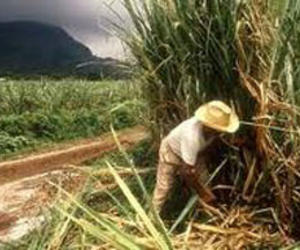UK firm signs Cuban renewable energy deal
- Submitted by: manso
- Business and Economy
- 01 / 17 / 2011

BBC. 17 January 2011 Last updated at 02:16 ET. The deal involves using sugar cane bagasse for power generation. Generating power from sugar cane fibre and wild shrubs is at the heart of a pioneering link between a British company and the Cuban government.
Havana Energy, chaired by former Labour government minister Brian Wilson, plans to develop the technology to build biomass energy plants in the country.The deal, with state-owned Zerus, comes as the country trials ways of working with private firms, after decades of running its economy through the state.It is being valued at $250m (157m).
The investment is being hailed as the first major renewable energy contract signed between Cuba and a British company.It would see a pilot project at the Ciro Redondo sugar mill, 250 miles south-east of Havana, with a second stage of four further biomass plants at other mills, each of 32mw capacity.A return on the investment is expected within five years.
According to Havana Energy, the country already produces 7% of its energy needs from renewable sources.But there is potential for far more, particularly from using the the sugar cane plant.As much as 50% of the country's energy needs - or 3000mw- could be provided by the burning of bagasse, the fibre left over after sugar cane is crushed at 56 sugar refineries in Cuba reckoned to have biomass potential.
In addition, about one million hectares of land on the island has been invaded by the marabu shrub, which is now being tested for its potential as an energy source in biomass burning.The strategic agreement follows a visit in November 2010 by academics from Scotland, looking at ways in which they can help develop the country's renewable energy potential.
One of those who took part, Professor Martin Tangney, director of the Biofuel Research Centre at Edinburgh Napier University, commented on the sugar mill biomass plants plans.
He said: "It is an ideal process and one of the most efficient sources of renewable energy in the world."The next stage should be incorporating biofuels from the other waste products from the sugar cane."
'Excellent record'
Brian Wilson, who was minister for energy, trade and Scotland as well as an Ayrshire MP, said: "Having tried for more than a decade to promote closer economic links between the UK and Cuba, I am delighted to be involved in a project that demonstrates the benefits of such co-operation.
"Cuba has an excellent record both in providing electricity for its people and promoting environmental sustainability. This project will support both objectives".
Nelson Labrada, the Cuban government's vice-minister of sugar, said: "This strategy of using sugar cane bagasse for power generation avoids one of the primary problems with other biomass sources which is supply."
"In Cuba it is possible via the sugar mills and bagasse based power plants to generate up to 40% of the energy needs of the country today."
Havana Energy is a subsidiary of Esencia, a British company focused on trade with Cuba, which also works in the tourism sector.
Source: http://groups.yahoo.com/group/CubaNews/message/120265
Comments